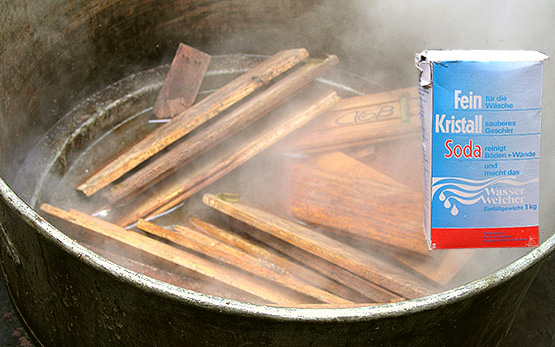Rathnayake D., Schmidt H.-P., Leifeld J., Bürge D., Bucheli T., Hagemann N.
Quantifying soil organic carbon after biochar application: How to avoid (the risk of) counting CDR twice?
Frontiers in Climate, 6, 2024, Artikel 1343516.
Bretscher D., Hagemann N., Keel S., Leifeld J.
Pflanzenkohle.
Agroscope. Merkblatt Nr. 191, 2023, 4 S.
weitere Sprachen:
französisch | italienisch
Hagemann N.
Pflanzenkohle und ihre Anwendungen: Eine Einführung.
In: German Biochar Forum. 14. November, Berlin. 2023, 1-18.
Hagemann N.
Pyrogenic carbon capture and storage: Negative emissions made by plants and fire.
In: CLIMACT seminar series. 30 October, online. 2023, 1-24.
Hagemann N.
Biochar in agriculture.
In: Professional Exchange. 18. Juni, Hrsg. Verein zur Dekarbonisierung der Industrie, online. 2023, 1-14.
Rathnayake D., Schmidt H.-P., Leifeld J., Mayer J., Epper C., Bucheli T., Hagemann N.
Biochar from animal manure: A critical assessment on technical feasibility, economic viability, and ecological impact.
Global Change Biology Bioenergy, 15, (9), 2023, 1078-1104.
Bucheli T., Hilber Schöb I., Schmidt H.-P., Hagemann N.
Polyzyklische aromatische Kohlenwasserstoffe (PAK) in Pflanzenkohle: Früher unbekannt – heute bestbekannt.
In: Pflanzenkohle-Fachtagung 2023. 16. Juni, Hrsg. Charnet – Schweizer Fachverband für Pflanzenkohle, Brugg-Windisch. 2023.
Hagemann N.
Zukünftige Herausforderungen für Böden und Beitrag der Pflanzenkohle zu deren Bewältigung.
In: Pflanzenkohle-Fachtagung 2023. 16. Juni, Hrsg. Charnet – Schweizer Fachverband für Pflanzenkohle, Brugg-Windisch. 2023, 1-15.
Meyer zu Drewer J., Abiven S., Hagemann N., Schmidt H.-P.
Permanence of soil applied biochar: Conclusions from the natural pyrogenic carbon cycle validate carbon sink accounting.
In: EGU General Assembly 2023. 25 April, Hrsg. European Geosciences Union (EGU), Vienna (AT). 2023, 1-2.
Hagemann N., Conte P., Leifeld J., Giger R., Bucheli T., Schmidt H.-P., Grafmüller J.
Impact of biomass ash content on biochar carbon speciation and stability.
In: EGU General Assembly 2023. 25 April, Hrsg. European Geosciences Union (EGU), Vienna (AT). 2023, 1.
Grafmüller J., Kray D., Kammann C., Mühe E. M., Schmidt H.-P., Hagemann N.
Granulated biochar-based NPK fertilizer and its impact on nutrient leaching, plant growth and soil-borne N2O emissions.
In: EGU General Assembly 2023. 23-28 April, Hrsg. European Geosciences Union (EGU), Vienna (AT). 2023.
Sigmund G., Schmid A., Schmidt H.-P., Hagemann N., Bucheli T., Hofmann T.
Sometimes size matters – new insights into the physical disintegration of biochar.
In: EGU General Assembly 2023. 28 April, Hrsg. European Geosciences Union (EGU), Vienna (AT). 2023, 1.
Sigmund G., Schmid A., Schmidt H.P., Hagemann N., Bucheli T., Hofmann T.
Small biochar particles hardly disintegrate under cryo-stress.
Geoderma, 430, 2023, 1-6.
Hagemann N., Schmidt H.-P.
EBC-Certification of biochar made from biosolids.
In: 1st Swedish Conference on Sewage Sludge Biochar. 12. Oktober, Sweden Water Research AB, Malmö. 2022.
Spahr S., Teixidó M., Gall S. , Pritchard J., Hagemann N., Helmreich B., Luthy R.
Performance of biochars for the elimination of trace organic contaminants and metals from urban stormwater.
Environmental Science: Water Research & Technology, 8, 2022, 1287-1299.
Grafmüller J., Schmidt H. P., Kray D., Hagemann N.
Root-Zone amendments of biochar-based fertilizers: Yield increases of white cabbage in temperate climate.
Horticulturae, 8, (4), 2022, 1-17.
Grafmüller J., Böhm A., Zhuang Y., Spahr S., Müller P., Otto T. N., Bucheli T., Leifeld J., Giger R., Tobler M., Schmidt H. P., Dahmen N., Hagemann N.
Wood ash as an additive in biomass pyrolysis: Effects on biochar yield, properties, and agricultural performance.
ACS Sustainable Chemistry & Engineering, 10, (8), 2022, 2720-2729.
Meyer zu Drewer, J, Köster, M, Abdulai, I, Rötter, M P, Hagemann N., Schmidt, H-P
Impact of different methods of root-zone application of biochar-based fertilizers on young cocoa plants: insights from a pot-trial.
Horticulturae, 222, (8), 2022, 328-342.
Sormo E., Silvani L., Bjerkli N., Hagemann N., Zimmerman A., Hale S., Hansen C., Hartnik T., Cornelissen G.
Stabilization of PFAS-contaminated soil with activated biochar.
Science of the Total Environment, 763, 2021, 144034-144045.
Schmidt, H.-P., Kammann C., Hagemann N., Leifeld J., Bucheli T., Sánchez Monedero M.A., Cayuela M.L.
Biochar in agriculture –A systematic review of 26 global meta-analyses.
Global Change Biology Bioenergy, 13, 2021, 1-23.






